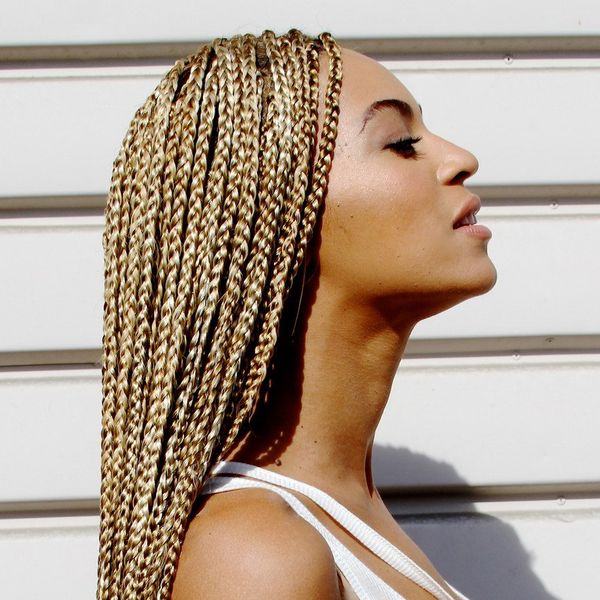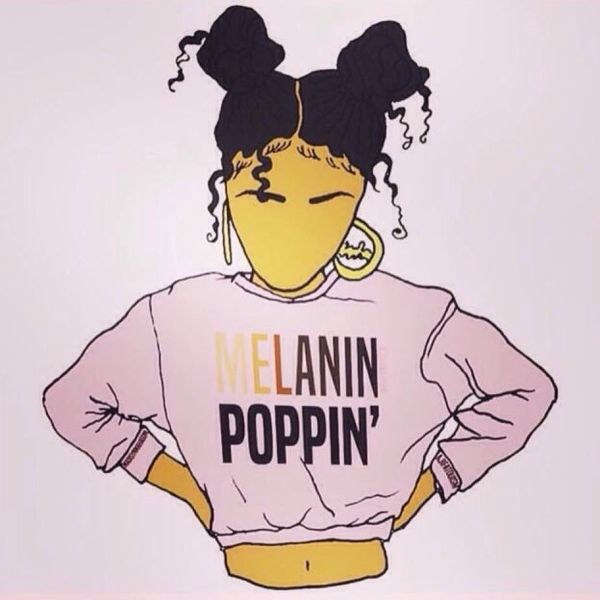For the third and final time this week, I got up only 10 minutes before I was supposed to leave for work, threw on my all black, and put some leave-in conditioner in my hair. I ran my fingers through it to loosen my tightly spiraled curls, just as I had done hundreds of times before. This is a ritual I always perform right before heading out the door.
The leave-in conditioner is something that I’ve recently starting doing, but loosening my curls is not so recent. Since the start of college, I’ve been looking for ways to redefine myself. When I first arrived at Shenandoah, I had a huge curly afro that resembled many things. Back at home, in Baltimore, people would call it “the Jew fro” or call me “Shirley Temple.” The names didn’t really bother me, and it always seemed that Black people had a way of dishing out nicknames as a gesture of affection. It was something that set me apart. People noticed my hair and used it as an identifier before I could even notice there was a difference.
In Baltimore, Maryland Black people make up over 63 percent of the population. I had no chance of escaping my Blackness. As a little boy, I didn’t have a sense of what the rest of the country looked like; I just knew that this was home and that was never questioned.
As I look back on my middle school and high school years, where kids really start to compare themselves to one another, I can distinctly remember phrases that people (other Black kids) used to say to me.
“You got that good hair.”
“Look at dem waves boy.”
“You got dat S-curl.”
"You got that Jheri Curl!"
“Wha-choo put in your hair to get it like dat?”
More than my lighter complexion, my hair was used as a device to set me apart and remind me that I wasn’t like the other Black people. This type of dialogue continued as I grew older and began to date.
“Let me braid your hair. It’s so pretty. You must be mixed!”
“You don’t understand, Avery; you got good hair!”
"Is your father white?"
The idea that, because of my texture of hair, I didn’t understand certain aspects of Black-American culture is something that has stuck with me. I wondered why my hair, and hair like mine, was so important to other Black people. Why was it always so important to take note of in my community? With what I know now, I think I can begin to unravel it.
After hundreds of years of subservience, Black people have learned that the quickest and easiest way to become more powerful and more beautiful is to appear more white. Grand Central Blog has an article dedicated to the ways in which award-winning actor Gabourey Sidibe has been made more palatable to the masses. On the cover of ELLE Magazine, we see her skin noticeably lightened, but shown in all of its glory on the cover of Ebony Magazine. Anyone who's seen Sidibe knows that her larger build and deep brown skin have been the source of many conversations surrounding her work, but these happenings speak to a much larger system at work.
In an effort to distance ourselves from our slave roots, we had combed our hair and slicked it back. We part it down the middle and wear hats and head wraps. We have taught our children that in order to appear well kept we must continue the tradition. Even though our children didn’t know the life of a slave firsthand, they too had to distance themselves from their roots – we all had to.
Growing up Black, the phrase “I need to get my hair done” is commonplace. Here in the 21st century, we still think that something needs to be “done” to our hair before we are deemed presentable. In the professional world, Black hair is unprofessional and needs to be groomed. In the educational world, Black hair is a distraction and needs to be tamed. Black hair in its natural state in inherently less than, unwanted, dirty, of low class and dare I say…downright ugly because it is a direct link from the 21st century to ship that brought our people over from Africa. It is a direct link to the whips and chains used to beat and hold our people in submission. It is a direct link to all of the ill-formed vowels and consonants that fell from lips trying utter such sounds for the first time. It is a direct link to people who were less than, people who were uneducated, people who were hung because of ignorance, people who were deemed lazy the moment they stopped working for free. Who would want to resemble these people?
In school systems across the nation, Black hair is used as a vehicle for denigrating other students. It’s almost as if the way to begin tearing down a Black child is to start by attacking his or her hair. We are talking about people that probably spend more time, and undoubtedly spend the most money, on hair than any other ethnic group in America. In the Black community, you know a child is cared for if they are clean and if their hair was well kept. It shows that someone took the time to take you to the shop, the salon, and sat you down in a chair or between their legs to manage your hair for what could take hours. If at any point your hair looked “crazy,” people knew that you had an unfit mother or none at all. Our public identities became wrapped up in the appearance of our hair, and natural, chemically unaltered, kinky, nappy, wavy, bushy hair didn’t fit into the mix.
I now realize that, to many of my peers, my hair represented the other side of an oppressive system that had held them down and told them that something needed to be done to their bareness. My own dual existence was a perpetual reminder of the type of white supremacy that cultivated this vilifying hierarchy of Black hair indifference. The fact that I got to identify as Black, but didn’t have to deal with “nappy” hair was paradoxical. They thought that I didn’t have to deal with these realities, and as a result, my Blackness was of lesser value. To them, my natural hair was more acceptable in the eyes of society, and on some level they were right. The privilege they thought I had could be diminished with every joke and name call that they threw at me, and somehow this would level the playing field.
Maybe in an attempt to level the playing field myself, I loosened my curls. Maybe in order to speed up the process, I made my hair look more like the mane of Lenny Kravitz instead of Shirley Temple’s. I’d be lying if I said that I haven’t been bullied because of my complexion and hair. I’d also be lying if I said that I hadn’t done things to increase my “Blackness” in the eyes of my community.
Maybe they’ve won. Maybe I should stop loosening my curls – owning my hair as also being a valid part of the Black experience. Maybe we all need to accept hair for being hair. That’s why I hate the phrase “good hair”.





















